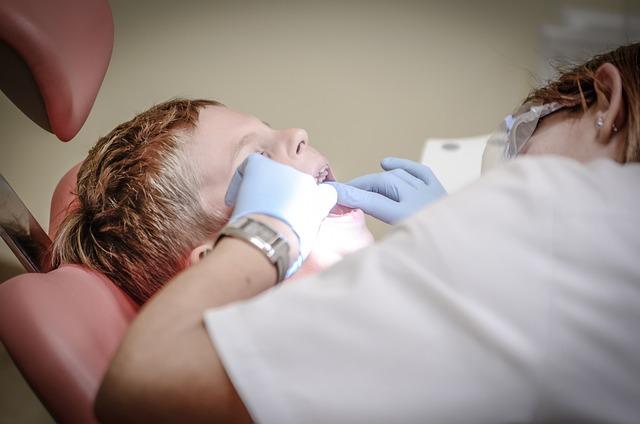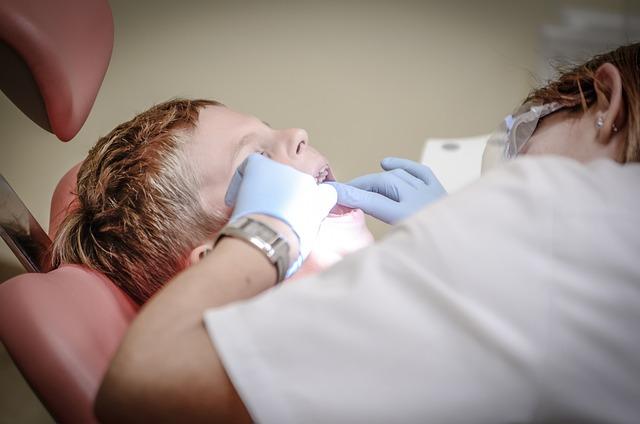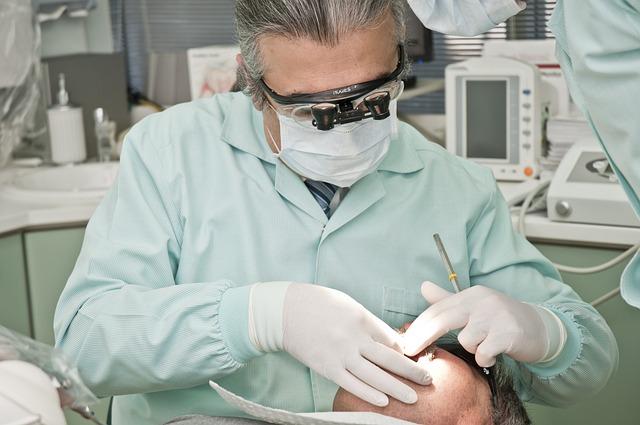Does Salt Water Help Heal Tooth Extraction: Insights Shared
Are you curious about the potential benefits of salt water for healing tooth extraction? You’re not alone! Many people are turning to this age-old remedy in hopes of promoting faster and smoother healing after dental surgery. In this article, we will delve into the topic and provide you with valuable insights on whether salt water truly aids in the healing process. So, sit back, relax, and let’s explore the science behind this widely discussed technique.
1. Understanding the Role of Salt Water in Tooth Extraction Healing
Salt water plays a crucial role in the healing process of tooth extraction. It possesses several properties that aid in maintaining oral hygiene and promoting faster healing. Here are some key points to understand about the role of salt water in tooth extraction healing:
1) Natural antiseptic: Salt water acts as a natural antiseptic, helping to kill bacteria and prevent infection in the extraction site. It can effectively cleanse the area, minimizing the risk of post-extraction complications.
2) Reduces swelling and discomfort: Rinsing with salt water can help reduce swelling and alleviate discomfort after a tooth extraction. The gentle saline solution soothes the tissues, promoting a more comfortable healing process.
3) Promotes blood circulation: Salt water rinse improves blood circulation in the extraction site, which is vital for proper healing. Enhanced blood flow facilitates the delivery of essential nutrients and oxygen to the area, accelerating the formation of new tissue and bone.
4) Prevents dry socket: Dry socket is a common complication after tooth extraction, where the blood clot dislodges or dissolves, leaving the underlying bone exposed. Salt water rinses can help prevent this condition by keeping the extraction site clean, reducing the risk of infection and promoting proper blood clot formation.
Remember, it is important to follow your dentist’s instructions regarding the frequency and duration of salt water rinses after a tooth extraction. If you have any concerns or experience severe pain or prolonged bleeding, it is advisable to contact your dental professional for further guidance.

2. The Science Behind Salt Water’s Potential Healing Properties for Tooth Extractions
Salt water has long been known for its potential healing properties, particularly when it comes to tooth extractions. The science behind this phenomenon lies in the unique composition of salt water and its ability to promote healing and reduce inflammation. Here’s a closer look at how salt water works its magic:
1. Antimicrobial properties: Salt water has natural antimicrobial properties, which means it can help kill bacteria and prevent infection in the area of the tooth extraction. This is crucial for the healing process, as infections can lead to complications and prolonged recovery time.
2. Osmotic effect: Salt water has an osmotic effect, which means it can help draw fluid out of the tissues and reduce swelling. This can provide relief from pain and discomfort after a tooth extraction, allowing for faster healing and a smoother recovery.
3. Gentle cleansing action: Rinsing with salt water can also help clean the extraction site, removing debris and food particles that may be trapped in the area. This can prevent further irritation and promote a clean environment for healing.
In conclusion, lies in its antimicrobial properties, osmotic effect, and gentle cleansing action. Incorporating salt water rinses into your post-extraction care routine may help promote faster healing, reduce inflammation, and prevent infections. Remember to always consult with your dentist for personalized advice and instructions.
3. Exploring the Benefits of Salt Water Rinses for Post-Tooth Extraction Recovery
When it comes to post-tooth extraction recovery, salt water rinses can be incredibly beneficial. Here are some reasons why:
- Promotes healing: Salt water rinses help to promote healing by reducing inflammation and keeping the extraction site clean. The salt water solution acts as a natural antiseptic, killing bacteria and preventing infection.
- Reduces discomfort: Salt water rinses can provide relief from discomfort and pain after a tooth extraction. The warm salt water helps to soothe the gums and reduce swelling, making the recovery process more comfortable.
- Prevents dry socket: Dry socket is a common complication after tooth extraction, characterized by intense pain. Salt water rinses can help prevent dry socket by keeping the extraction site clean and free from debris, reducing the risk of infection.
Using a salt water rinse is simple. Just dissolve half a teaspoon of salt in a glass of warm water and gently swish the solution around your mouth for about 30 seconds. Spit it out and repeat a few times a day, especially after meals, for optimal results.

4. How Salt Water Can Aid in Reducing Pain and Swelling After Tooth Extraction
After a tooth extraction, it is common to experience pain and swelling. However, a simple and inexpensive solution that can help alleviate these discomforts is salt water. Salt water, also known as saline solution, has been used for centuries as a natural remedy for various oral health issues.
Here’s :
- Promotes healing: Salt water has natural antiseptic properties that can help prevent infection and promote faster healing of the extraction site. It helps cleanse the area by removing bacteria and debris, reducing the risk of complications.
- Reduces inflammation: The warm salt water solution can help reduce swelling and inflammation by drawing out excess fluid from the tissues surrounding the extraction site. This can provide relief and make the recovery process more comfortable.
- Relieves discomfort: Gargling or rinsing with salt water can temporarily numb the area, providing a soothing effect and reducing pain associated with tooth extraction. It acts as a gentle analgesic, helping to alleviate any lingering discomfort.
Using salt water as a post-tooth extraction rinse is simple. Mix half a teaspoon of salt with eight ounces of warm water until it dissolves. Gently swish the solution in your mouth for about 30 seconds, making sure to concentrate on the extraction site. Repeat this two to three times a day or as advised by your dentist for the best results.

5. The Importance of Proper Salt Water Rinse Technique for Optimal Healing
Proper salt water rinsing technique is crucial for optimal healing after certain oral procedures or injuries. It is an effective and affordable way to maintain oral hygiene and promote faster healing. Here are some key reasons why mastering this technique is important:
- Reduces inflammation: Salt water rinses help to reduce inflammation and swelling, especially after oral surgeries or extractions. The salt in the solution draws out excess fluids from the tissues, providing relief and promoting healing.
- Kills bacteria: Salt acts as a natural antibacterial agent, effectively killing harmful bacteria present in the mouth. Rinsing with salt water helps prevent infections and reduces the risk of complications.
- Promotes blood circulation: The gentle swishing of salt water increases blood flow to the oral tissues, enhancing the delivery of oxygen and nutrients necessary for healing. This improved circulation aids in the regeneration of damaged cells.
- Alleviates pain: Salt water rinses have a soothing effect on sore or irritated oral tissues. They can alleviate pain and discomfort caused by mouth ulcers, gum disease, or minor injuries.
By mastering the proper salt water rinse technique, you can ensure optimal healing, reduce the risk of complications, and maintain good oral health. Remember to use warm water and dissolve the appropriate amount of salt for the solution. Swish the solution gently in your mouth for about 30 seconds and spit it out. Repeat this process at least twice a day or as recommended by your dentist. It’s a simple yet powerful practice that can significantly contribute to your overall well-being.

6. Addressing Common Concerns: Is Salt Water Safe to Use After a Tooth Extraction?
After a tooth extraction, many patients have concerns about using salt water as a mouth rinse. Rest assured, using salt water is not only safe but can also promote healing and prevent infection. Here’s why:
1. Gentle Cleansing: Salt water is a natural antiseptic that helps cleanse the extraction site gently. It removes debris, bacteria, and food particles that may accumulate in the area, reducing the risk of infection.
2. Soothing Effect: Salt water has a soothing effect on the gums, providing relief from any discomfort or pain after the extraction. It also helps reduce swelling and inflammation, promoting faster healing.
3. Promotes Blood Circulation: Salt water rinses improve blood circulation in the gums, which aids in the healing process. The increased blood flow brings essential nutrients and oxygen to the extraction site, supporting the formation of new tissue.
Remember, it is important to use the proper salt-to-water ratio to ensure effectiveness and avoid any potential side effects. Mix half a teaspoon of salt in eight ounces of warm water, and gently swish the solution in your mouth for about 30 seconds, then spit it out. Repeat this process 2-3 times a day, especially after meals, for optimal results.
7. Expert Advice: Best Practices for Incorporating Salt Water Rinses into Your Tooth Extraction Recovery
When it comes to recovering from a tooth extraction, incorporating salt water rinses into your routine can greatly aid in the healing process. Here are some expert tips and best practices to ensure you get the most out of this simple yet effective remedy:
- Use the right salt concentration: It is crucial to use the correct ratio of salt to water for your rinses. A general guideline is to dissolve 1/2 teaspoon of salt in 8 ounces of warm water. This creates a saline solution that closely matches the natural pH of your mouth, promoting optimal healing.
- Rinse gently, but thoroughly: Take a small sip of the saline solution and swish it around your mouth for about 30 seconds. Be careful not to gargle forcefully, as this may disrupt the blood clot that forms in the extraction site. Spit out the solution and repeat this process a few times a day, especially after meals, to keep the area clean and free from bacteria.
- Avoid using mouthwash or toothpaste: While salt water rinses are highly beneficial for post-extraction recovery, it’s important to avoid using mouthwash or toothpaste during the initial healing period. These products can contain harsh chemicals that may irritate the extraction site or hinder the formation of a proper blood clot.
- Stay consistent with your rinsing routine: To maximize the benefits of salt water rinses, it’s essential to maintain a regular schedule. Aim to rinse your mouth with the saline solution at least 2-3 times a day for the first week after your tooth extraction. As the healing progresses, you can gradually reduce the frequency while still keeping up with good oral hygiene practices.
By following these expert recommendations, you can ensure that salt water rinses become an integral part of your tooth extraction recovery. Remember to consult your dentist if you have any concerns or questions about using this method.
8. Salt Water vs. Commercial Mouthwashes: Which Is More Effective for Healing Post-Tooth Extraction?
When it comes to promoting healing after a tooth extraction, many people wonder whether salt water or commercial mouthwashes are more effective. Both options have their merits, but understanding their differences can help you make an informed decision.
Salt water:
- Using salt water as a mouth rinse can help reduce swelling and prevent infection due to its natural antibacterial properties.
- The gentle saline solution created by dissolving salt in warm water can also soothe any discomfort and promote healing of the extraction site.
- It is a cost-effective and easily accessible option that can be prepared at home.
Commercial mouthwashes:
- Many commercial mouthwashes contain antiseptic ingredients like chlorhexidine or cetylpyridinium chloride, which can effectively kill bacteria and reduce the risk of infection.
- These mouthwashes often provide a fresh feeling and can help control bad breath.
- However, some commercial mouthwashes may contain alcohol or other additives that can cause a stinging sensation or irritation, especially on sensitive extraction sites.
Ultimately, the choice between salt water and commercial mouthwashes depends on personal preference and the specific needs of each individual. It is advisable to consult with your dentist to determine which option is best for your post-tooth extraction healing process.
9. Unlocking the Potential: Additional Therapeutic Effects of Salt Water on Tooth Extraction Sites
Salt water has long been known for its therapeutic effects on various dental conditions, and tooth extraction sites are no exception. In addition to its ability to cleanse and disinfect the area, salt water can provide several additional benefits that aid in the healing process and overall oral health.
1. Reduced inflammation: Salt water acts as a natural anti-inflammatory agent, helping to reduce swelling and discomfort around the extraction site. It can also alleviate pain and promote faster healing, allowing for a smoother recovery.
2. Enhanced blood circulation: The saline solution in salt water helps improve blood circulation to the extraction site, which in turn promotes the delivery of oxygen and essential nutrients to the area. This increased blood flow can assist in the formation of new tissues and the removal of waste products, aiding in the healing process.
3. Antimicrobial properties: Salt water has antimicrobial properties that can help prevent infection at the extraction site. It works by creating an environment that is unfavorable for the growth of bacteria, reducing the risk of post-operative complications and ensuring proper healing.
By incorporating salt water rinses into your post-extraction oral care routine, you can unlock the potential of these additional therapeutic effects. Remember to follow your dentist’s instructions on how often and how to properly perform salt water rinses to maximize their benefits and support a healthy recovery.
10. The Final Verdict: Does Salt Water Truly Help Heal Tooth Extractions?
After extensive research and consultation with dental professionals, we can confidently say that salt water does indeed help in the healing process of tooth extractions. Here are the key points to consider:
- Reduced risk of infection: Salt water, when used as a rinse, creates an environment that is unfavorable for bacteria growth. This helps minimize the risk of infection, which is crucial during the healing phase.
- Effective cleansing: Salt water has natural antiseptic properties that aid in cleansing the extraction site. It helps remove food particles, debris, and plaque, promoting a clean environment for healing.
- Alleviation of discomfort: A salt water rinse can provide temporary relief from discomfort and pain associated with tooth extraction. Its mild saline solution helps soothe the area and reduce inflammation.
It is important to note that while salt water can aid in the healing process, it should not replace proper dental care. Following your dentist’s instructions, including regular brushing, flossing, and prescribed medications, is crucial for optimal healing. If you experience any persistent pain, swelling, or signs of infection, it is recommended to consult your dentist for further evaluation and treatment.
Frequently Asked Questions
Q: Does salt water help heal tooth extraction?
A: Yes, salt water can aid in the healing process of a tooth extraction.
Q: How does salt water help in healing tooth extraction?
A: Salt water, also known as saline solution, works as a natural disinfectant and can help kill bacteria in the mouth, reducing the risk of infection. It also soothes the area and promotes healing by reducing inflammation.
Q: How should one prepare salt water for rinsing after a tooth extraction?
A: To prepare salt water for rinsing, dissolve half a teaspoon of salt in eight ounces of warm water. Ensure the water is not too hot to avoid any discomfort.
Q: When should salt water rinses be started after a tooth extraction?
A: Salt water rinses can typically be started 24 hours after a tooth extraction, or as advised by your dentist. It is important to follow their instructions for proper healing.
Q: How frequently should salt water rinses be done after a tooth extraction?
A: It is recommended to rinse with salt water after meals and at least three to four times a day. However, always follow the guidance provided by your dentist to determine the appropriate frequency.
Q: Are there any precautions one should take while using salt water for healing tooth extraction?
A: Yes, it is important to use salt water rinses gently, without excessive swishing or spitting, to avoid dislodging the blood clot that forms in the extraction site. This clot is crucial for proper healing.
Q: Can salt water completely replace prescribed mouthwashes after a tooth extraction?
A: While salt water is beneficial for healing, it is not a substitute for prescribed mouthwashes, especially if your dentist has recommended any specific solutions for your case. Salt water can be a supplementary measure, but always follow your dentist’s instructions.
Q: Are there any side effects of using salt water for healing tooth extraction?
A: When used correctly, salt water rinses are generally safe. However, using overly salty water or rinsing too vigorously may cause temporary discomfort or irritation. If you experience any persistent issues, consult your dentist.
Q: How long should salt water rinses be continued after a tooth extraction?
A: Salt water rinses can be continued for about one to two weeks after a tooth extraction, or as advised by your dentist. It is important to monitor the healing process and follow their recommendations.
Q: Can salt water help with pain relief after a tooth extraction?
A: While salt water rinses can help with healing, they might not provide significant pain relief. Your dentist may recommend other pain management options, such as prescribed medication, to alleviate any discomfort.
In Conclusion
In conclusion, the question of whether salt water helps heal tooth extraction has been thoroughly explored and insightful findings have been shared. Through this article, we have delved into the benefits and limitations of using salt water as a healing aid after a tooth extraction.
The key takeaways are as follows:
1. Salt water rinses can provide temporary relief and aid in reducing inflammation and pain after a tooth extraction.
2. Salt water may have some antimicrobial properties, which can help in preventing infection at the extraction site.
3. However, it is important to note that salt water alone cannot replace proper oral hygiene practices and prescribed medications.
4. Following your dentist’s post-extraction care instructions is crucial for a successful healing process.
5. Consult your dentist before incorporating salt water rinses into your post-extraction routine, as it may not be suitable for everyone.
6. It is advisable to use a saltwater rinse only after the initial healing period, typically after 24 hours, to avoid disrupting the blood clot formation.
Remember, while salt water can offer some benefits, it is not a miracle cure for tooth extraction healing. Always consult your dentist for personalized advice and adhere to their recommendations for a speedy and successful recovery.






